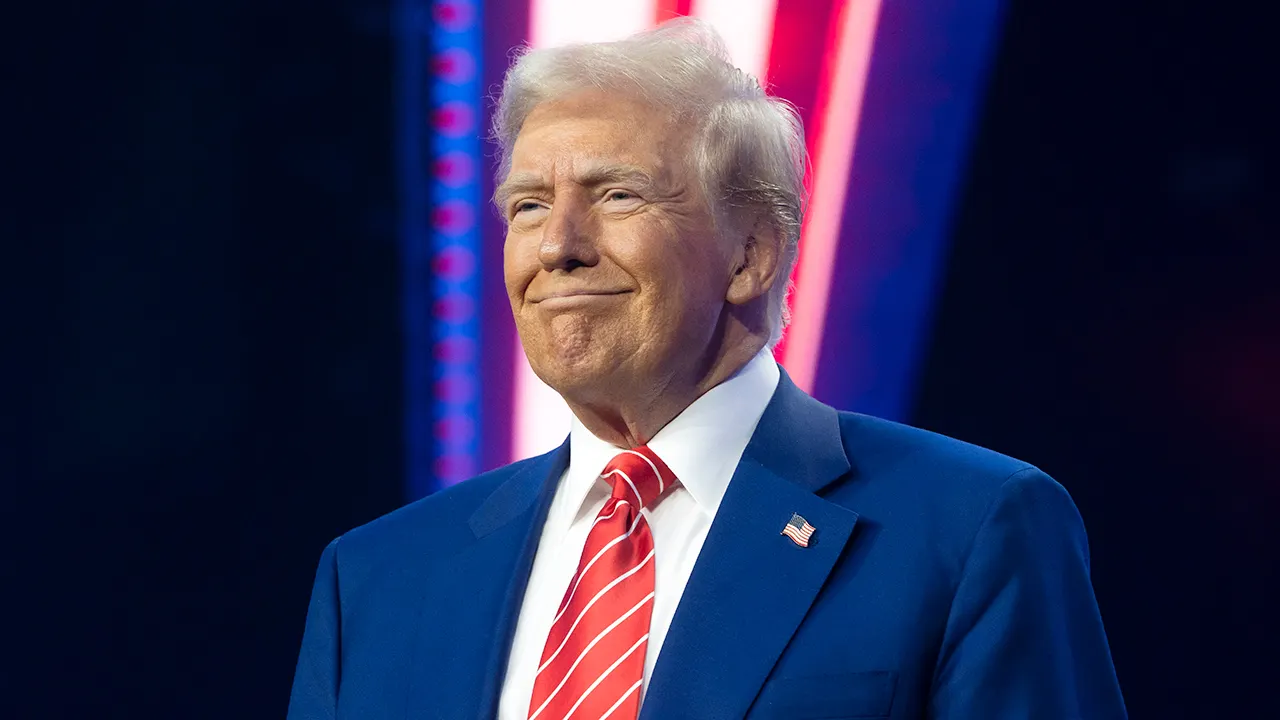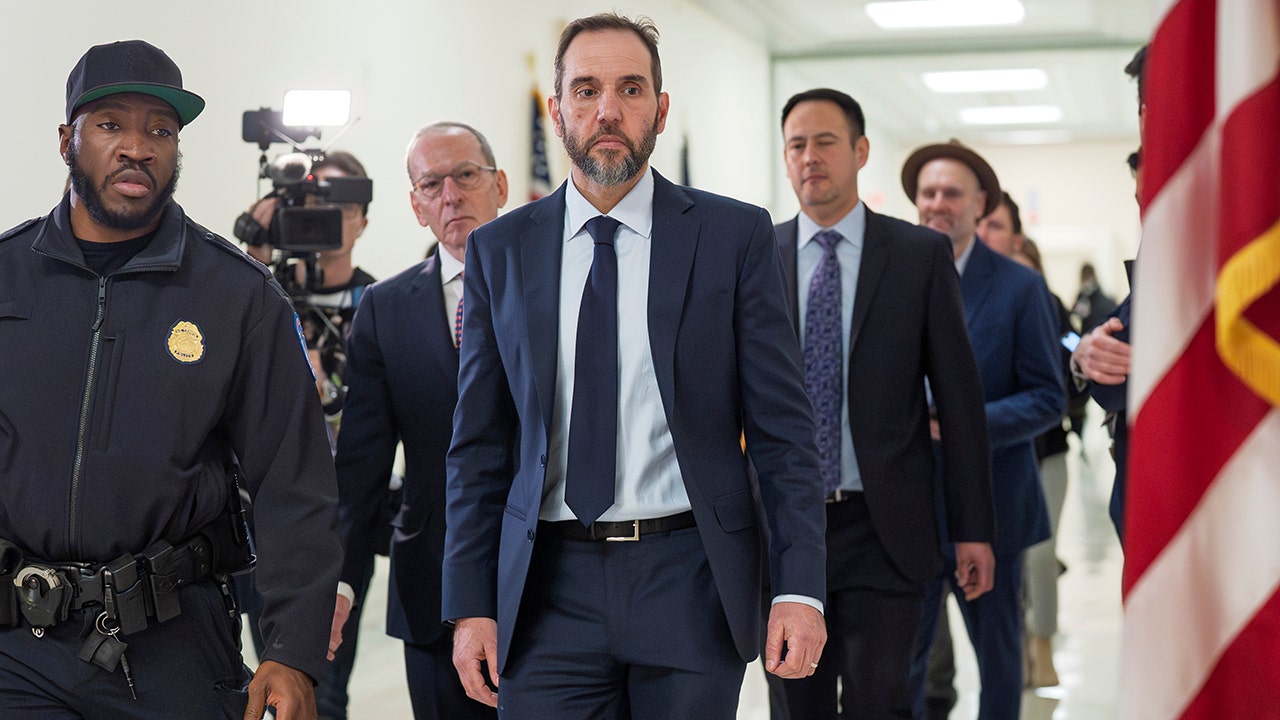
Voters want more US involvement on world stage despite isolationist talk, Ronald Reagan Institute survey finds
FIRST ON FOX: An overwhelming majority of Americans view foreign policy and national defense as being “somewhat” or “extremely” important to them, according to a new survey from the Ronald Reagan Institute that also weighed U.S. attitudes about rival nations and revealed which is viewed as posing the “greatest threat” to the country.
As Americans await another change in the White House while the Biden and Trump administrations prepare for the executive reshuffle, and uncertainty has set the tone for what the U.S.’s geopolitical future will look like amid increasingly volatile relations with nations like Russia, China, Iran and North Korea, there is stark uniformity in the way Americans view the topic of national defense.
“Americans who cast their votes for different candidates share an unshakable core set of beliefs: the United States must lead on the world stage, backed by a strong military that can secure the peace through its strength,” the Ronald Reagan Institute said in a report first obtained by Fox News Digital detailing its 2024 National Defense Survey results.
US ‘SLEEPWALKING’ INTO WWIII, EXPERTS WARN NATION IS UNDERPREPARED: ‘WE DO NOT HAVE OUR CHURCHILL’
The survey’s results – which reflected the answers from some 2,500 questionnaires issued between Nov. 8-14 through telephone and online based platforms – not only highlight that U.S. security and foreign policy issues remain important topics, but they also indicated that the U.S. should take the lead in major international issues.
The opinion shows a divergence from the position frequently pushed by president-elect Donald Trump, who has long championed an “America first” policy, which some fear could isolate the U.S. during a geopolitically turbulent time as Russia’s aggression continues to ramp up in Europe, Iran remains a chief threat in the Middle East, and China continues to pose a threat politically, militarily and economically.
“I think it’s really interesting to compare some of the campaign rhetoric that we saw, frankly, from both candidates, and see where that is and is not resonating with the American people,” Rachael Hoff Policy Director at the Ronald Reagan Institute, told Fox News Digital in reference to both Trump and his previous campaign challenger Vice President Kamala Harris.
The survey also found that since the annual poll began six years ago, “a record high” number of Americans support “U.S. leadership and international engagement” with a strong support for a global military posture.
“This represents a significant 15-point increase since just last year and a steady upward trend from a low-point in the early 2020s,” the report said, noting that this shift was most prevalent among younger survey takers which saw a 32-point jump this year for those under the age of 30, along with a 19-point increase for those between the ages of 30 and 44.
WHAT DOES PRESIDENT-ELECT DONALD TRUMP’S WIN MEAN FOR US AMID WAR BETWEEN RUSSIA, UKRAINE?
The drive for more U.S. involvement abroad particularly in East Asia, which includes areas like China and the Korean peninsula, the Middle East and Europe reflects the growing concern Americans have over not only the burgeoning alliance between Russia, Iran, North Korea and China, but on whether the U.S. military can stand up to these nations.
While more than half of male survey takers, 59%, said they believe the U.S. could win a war against China, the female participants were more skeptical with only 45% expressing the same confidence, while 23% said they were unsure compared to 18% of male participants expressing the same.
More confidence in the U.S. military was displayed when asked if the U.S. could win a war against Russia, though again women signaled less confidence than their male peers, with 73% of male participants saying the U.S. would come out on top compared to only 56% of female survey takers.
While it remains unclear why female participants were less confident in the U.S. military, the majority of survey takers collectively agreed that China is the U.S.’s greatest threat, though Russia as the U.S.’s chief enemy.
TIRED OF UKRAINE? REMEMBER SOUTH VIETNAM
“One of the biggest trends that we’ve seen in the last three or four years in the poll is really the consensus growing that China is the is the greatest threat that we face – that’s really resonating with the American people, and it’s something that clearly we’ve heard on a bipartisan basis from national security leaders in Washington,” Hoff said. That doesn’t mean that Americans don’t perceive Russia, Iran, North Korea, or even the cooperation between those malign actors as a threat.
“In fact, one interesting takeaway from our poll this year is that 85% of Americans, a huge percentage…are concerned about the cooperation and collaboration between Russia, China, Iran and North Korea, and we’re seeing that play out under the front lines in Ukraine,” Hoff added. “We’re seeing it play out in the Middle East and it’s something that Americans want our government to understand and to get after.”
Hoff explained that though the survey – which reflected information made clear in the lead up to and after the U.S. general election – showed Americans prioritize paying for domestic issues like healthcare, border security and social security above the military and foreign policy-based initiatives, national security and geopolitics remain a major issue for Americans.
“What we see from the poll across the board is that they don’t see foreign policy and national security as something that they want to divest from,” she said. “When asked to sort of put those in competition with each other, that’s where it gets really, really tough.
“But they clearly want their government to be able to walk and chew gum at the same time,” Hoff said. “The perception that there’s kind of a growing isolationist sentiment in this country really doesn’t bear out in the data.
CLICK HERE TO GET THE FOX NEWS APP
“There’s a lot of rhetoric – whether you listen to the debates on Capitol Hill or the debates in the media – that would lead you to believe that the American people want to want the U.S. to do less in the world, that they want us to take a step back from international leadership. And it turns out, when you ask the American people, that’s simply not the case,” Hoff said.
“They want America to lead from a position of strength. They want us to have a strong military,” she continued. “They want us to stand up for the values of freedom and democracy around the world. And that’s true on a bipartisan basis among both Republicans and Democrats, those who voted for President Trump and has voted for Vice President Harris.”



